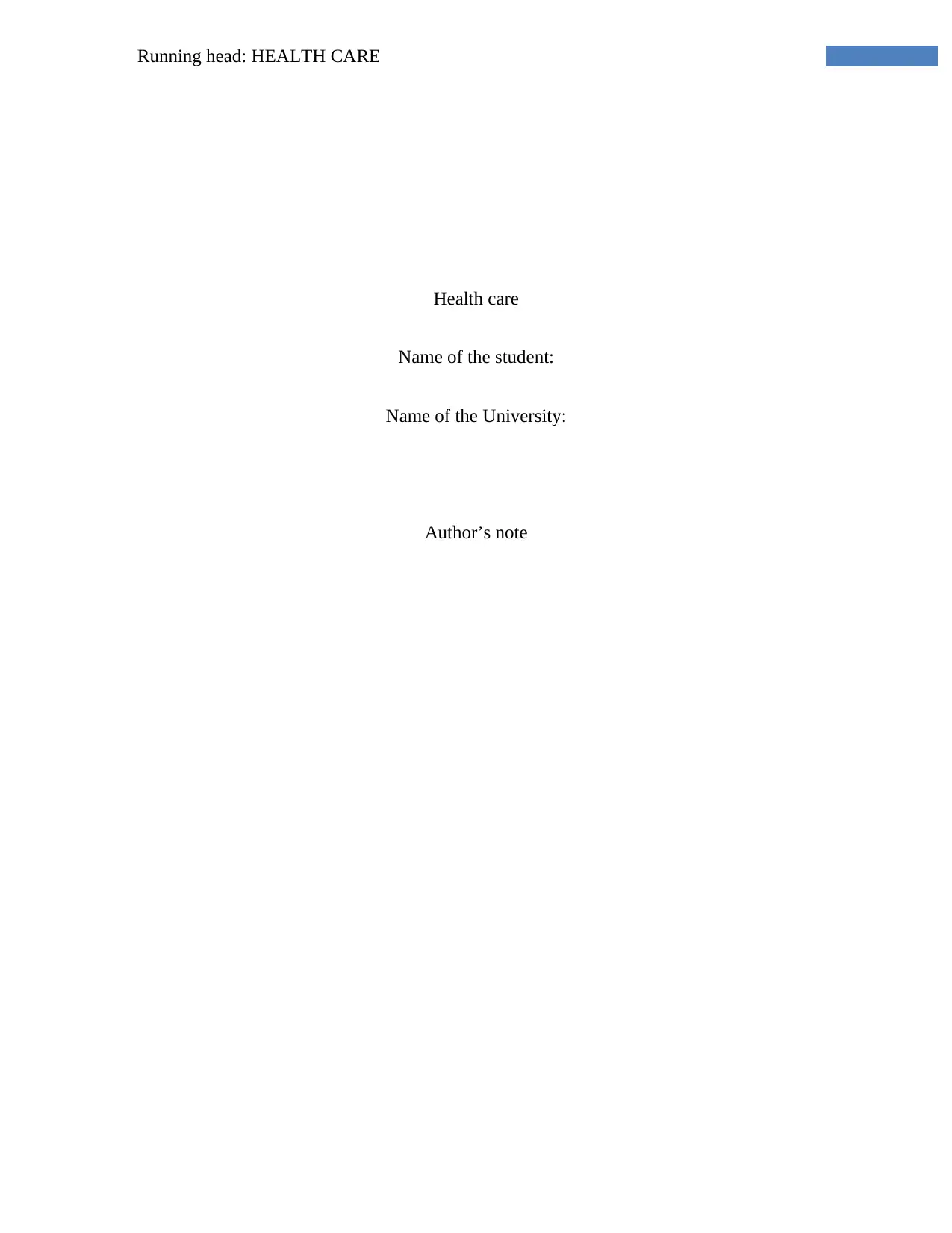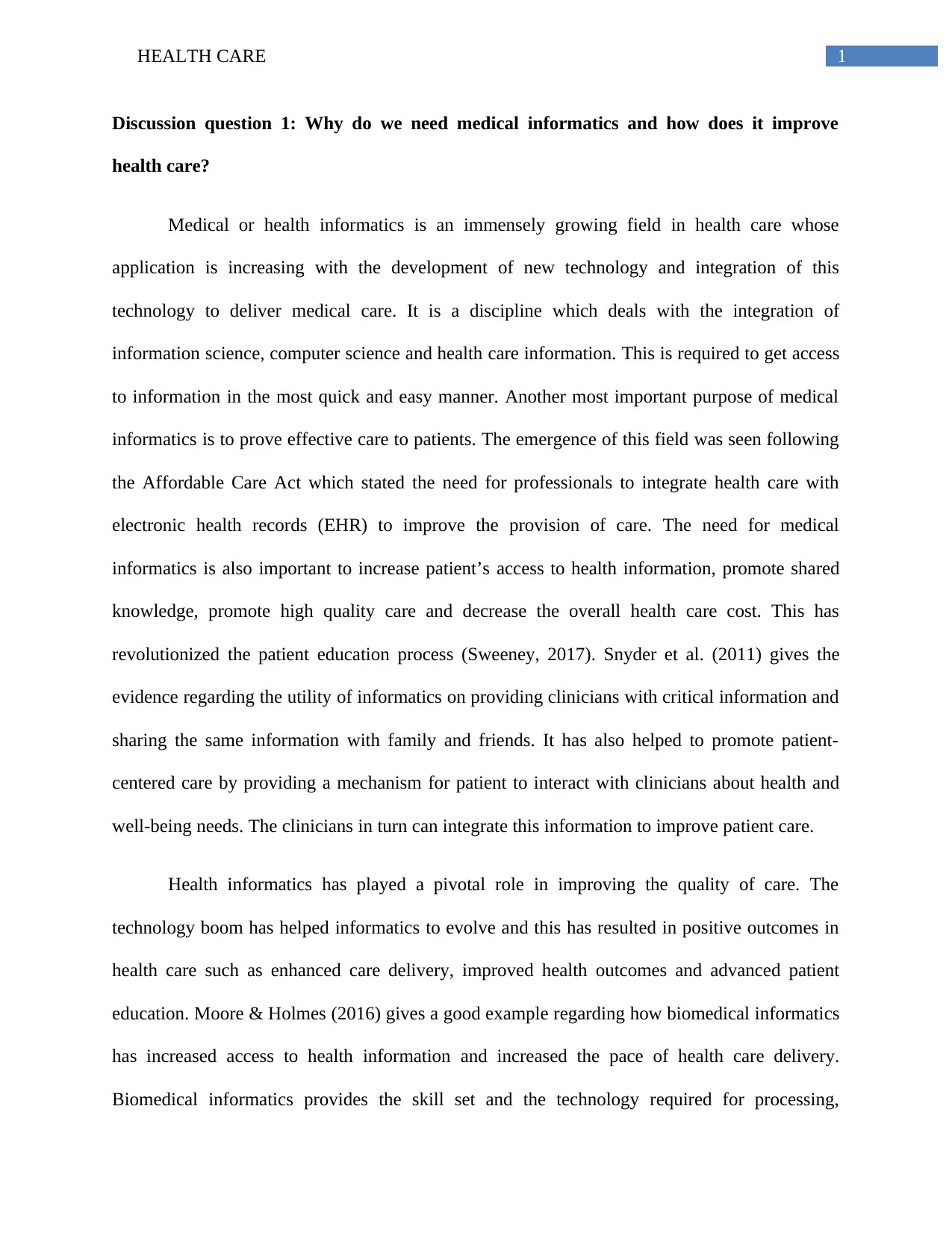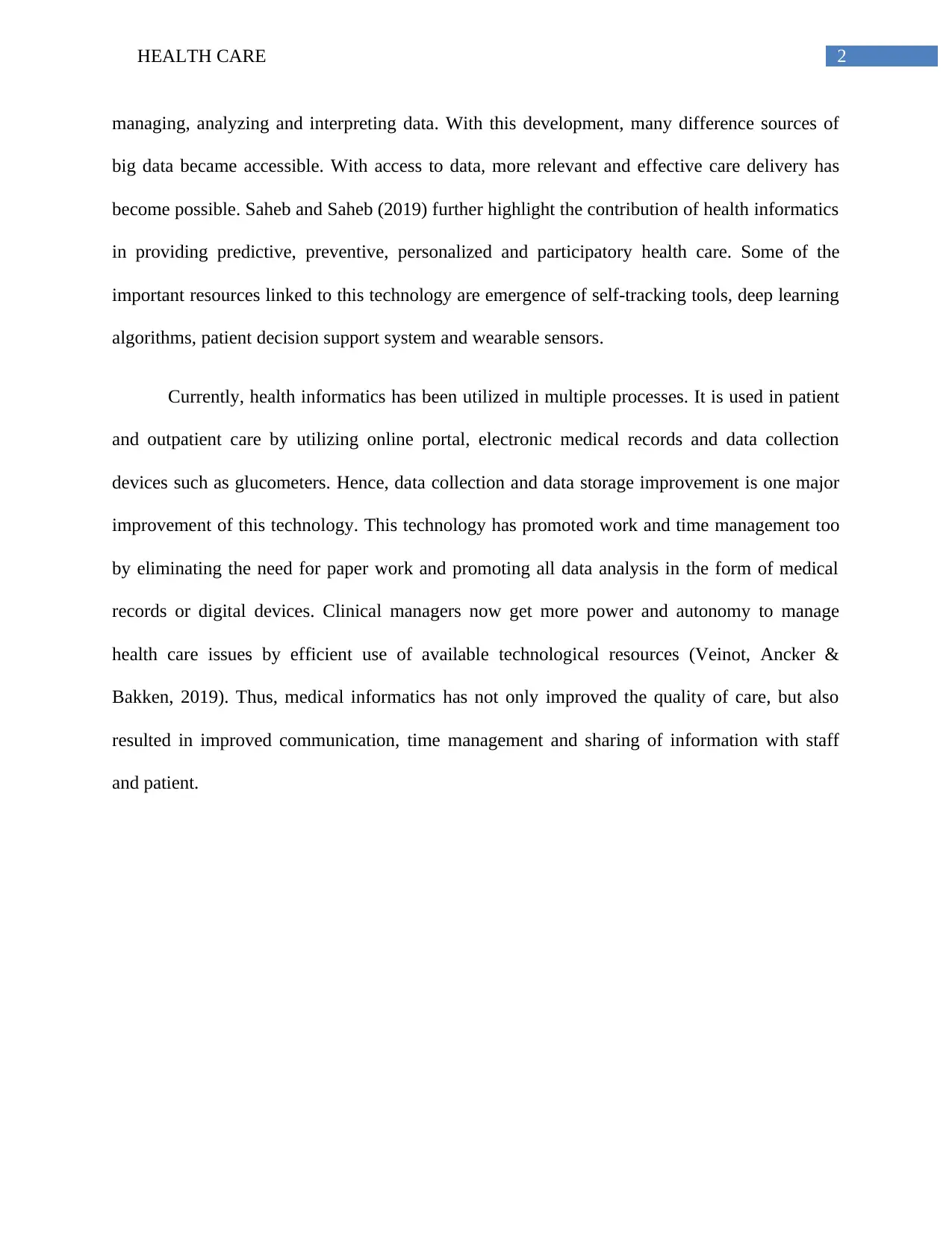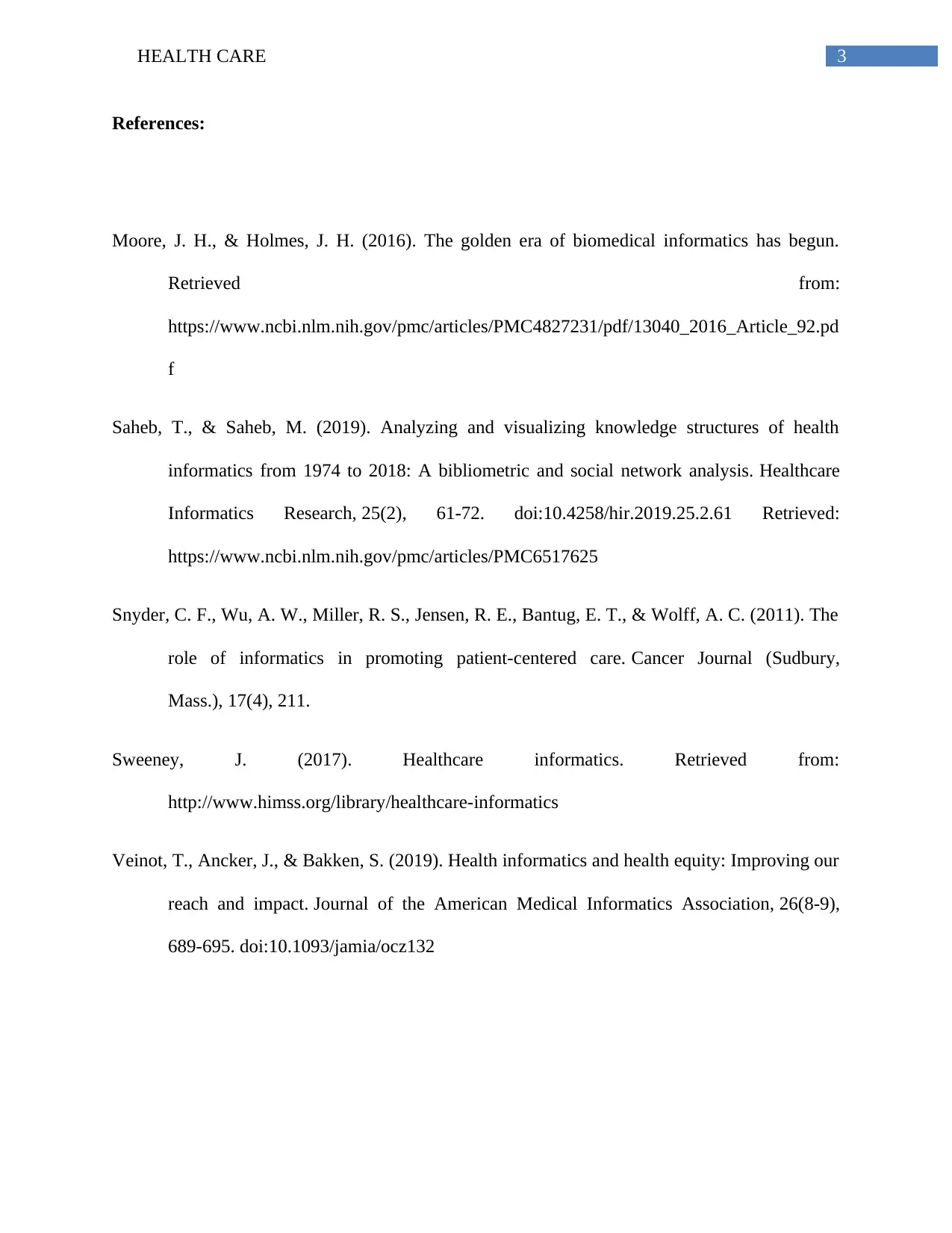The Role of Medical Informatics in Modern Healthcare Systems
VerifiedAdded on 2022/08/14
|4
|792
|7
Discussion Board Post
AI Summary
This discussion post addresses the necessity of medical informatics and its positive impacts on healthcare. Medical informatics, integrating information science, computer science, and healthcare information, is crucial for efficient access to patient data and improved care delivery. The post highlights the role of electronic health records (EHRs) and how they improve patient access to information, promote shared knowledge, and reduce healthcare costs. It also discusses the evolution of health informatics, its impact on patient-centered care, and the increasing use of technology like self-tracking tools and wearable sensors. The author references several studies to support the claims, including Moore & Holmes (2016) and Saheb & Saheb (2019), which emphasize the role of biomedical informatics in data management, analysis, and predictive, preventive, personalized, and participatory healthcare. The post concludes by emphasizing the improvements in communication, time management, and information sharing that medical informatics brings to healthcare.
1 out of 4











![[object Object]](/_next/static/media/star-bottom.7253800d.svg)